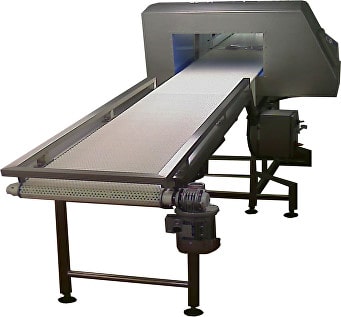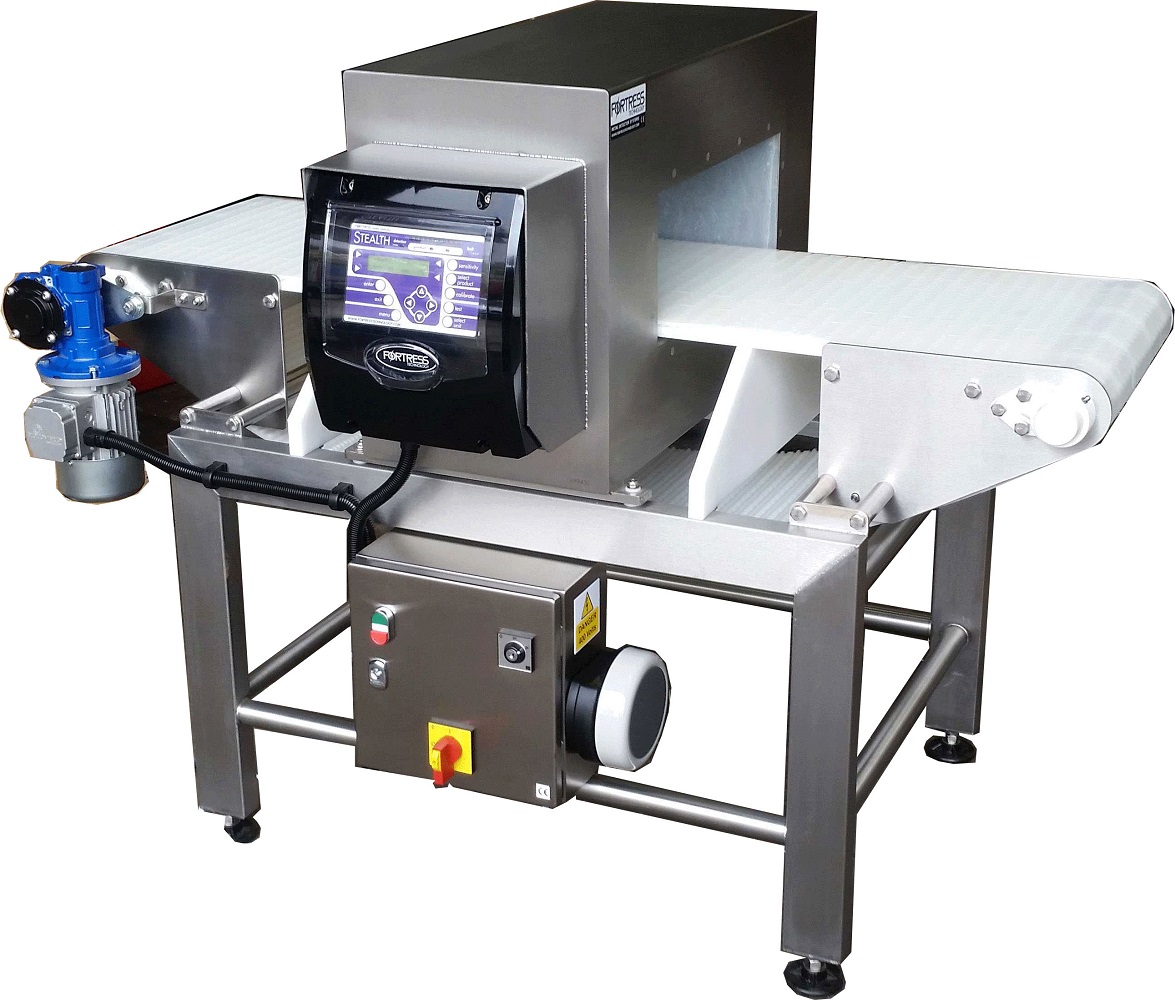Food Metal Detectors
for Hygiene Conscious Manufacturers and Industries
Food metal detectors are designed to fit seamlessly within any industrial environment. At Stainless Steel Manufacturing & Equipment, we supply our metal detectors in various sizes to match the diverse requirements of our customers.
Any of the metal detectors for food industry are designed with hygienic and sanitary considerations in mind, making them perfect for food processing and packaging.
What are Food Metal Detectors used for?
The metal detectors for food industry are used for various applications, whether it be to detect metal pieces in packaged products or unpackaged items. Some of our detectors are designed to have a belt stop and alarm whilst others have a reject lockable box.
The metal detectors for food industry are ideal if you’re looking to supply products that are safe for consumption. Our high-performing detectors can detect the smallest fragment of metal- even stainless steel which is considered to be the hardest metal to detect as a result of it being a poor conductor!
If you’re looking to achieve the maximum in every product, a stainless steel metal detector from Stainless Steel Manufacturing & Equipment is an ideal investment to make, delivering the best quality possible.
How do they work?
The food metal detectors are designed to operate efficiently. Instead of using transistors and integrated circuits, our metal detectors for food industry use microprocessors which offer greater sensitivity and stability.
Depending on which detector you choose from our extensive collection, you could benefit from a variety of output signals. If you’re looking to detect non-magnetic metals, an accurate frequency is required, this will essentially allow you to detect materials like stainless steel, ensuring that there is no trace of the metal found within foods.
Any stainless steel metal detector is easy to control, allowing you to adjust the speed and output. Whether you’re looking to transfer individual products or products in bulk, a stainless steel metal detector will allow you to do so with confidence, providing you with the reassurance that foods are safe to eat and maximising the legitimacy of your business.
Importance of Food Metal Detectors
When it comes to transporting products to be processed and packaged, you want to be sure that there is no compromise made to quality. As the biggest contaminant of food, metal is used in abundance by food industries, usually for equipment.
To prevent metal from old or broken machines affecting consumables, consider one of our metal detectors for food industry today! There are countless ways that you could benefit from our range of metal detectors, including the following:
No matter which of our machines you choose for your industrial setting, you’ll find that they are easy to operate and function automatically, allowing you to convey products quickly and reliably. The stainless steel metal detector provides reliable protection from metal and is designed to perform accurately.
Although our detectors each provide similar characteristics, they perform slightly differently to one another, so make sure that you identify only the most appropriate metal detector for your food industry!
Here at SSME, we supply the stainless steel metal detector in several variations to provide a cost-effective solution, suiting the requirements of the food and pharmaceutical industry and playing a valuable role in quality control.
From the collection of metal detectors below, you’ll find the Tray Food Metal Detector, the Eurobox Food Metal Detector with rollers and the Bespoke Food Metal Detector which is tailored to suit your specific requirements.
Check them out today!
Frequently Asked Questions
How do food metal detectors work?
The way a food metal detector works is straightforward.
For the most part, these systems are equipped with a transmitter coil that generates a constant electromagnetic field, and two receiver coils.
When a metal particle passes through the system, it interferes with the electromagnetic field and the receiver coils detect a signal. An electronic unit then analyses the signal and evaluates it before producing a sound or rejecting the contaminated product.
Usually, food metal detectors have an automatic reject function that separates the contaminated item from the production line, ensuring it doesn’t progress any further.
If you’d like to know more about how our metal detectors work in the food industry, feel free to call us on 0121 661 6346.
Why are metal detectors used in the food industry?
Metal detectors are used in the food and beverage industry for various reasons – but the main one is to ensure maximum safety for consumers.
Whether metal particles enter the product during the production process or beforehand when the material is in its raw state, it can cause serious harm to anyone who eats it.
Supplying contaminated (impure) goods could lead to numerous compensation claims and product recalls, not to mention tarnishing your business’ reputation!
Food metal detectors are designed to protect against both ferrous and non-ferrous metals in raw and cooked products. They can be installed at various stages of the production process and used to inspect all manner of items – from bread and baked goods to meat and fish, dairy products, spices, fresh produce and sugary snacks.
Do food metal detectors require much upkeep?
When using a metal detector in a hygienic environment, such as a food production plant, it must be able to withstand high-pressure and strict cleaning regimes to ensure optimal efficiency and safety.
Taking time to maintain your food metal detector will also make you aware of any potential faults or signs of wear and tear, preventing damaged machinery and metal fragmentation.
Fortunately, our food metal detectors here at SSME are made from stainless steel, making them quick and easy to wipe down in between uses and at the end of the day. They’re also corrosion-resistant, so won’t rust either.

